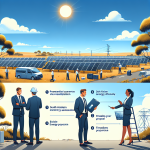How do I network with other small business owners in Australia?
You can enhance your business prospects by building connections with fellow small business owners in Australia. Networking opens up opportunities for collaboration, mentorship, and sharing valuable resources. In this guide, you’ll discover effective strategies to connect with other entrepreneurs, from attending local events to leveraging online platforms. Whether you’re just starting out or looking to expand your existing network, these practical tips will help you create meaningful relationships that can benefit your business in the long run.
Key Takeaways:
- Join local business groups: Engage with community organizations and chambers of commerce to connect with fellow small business owners.
- Attend networking events: Look for workshops, seminars, and trade shows to meet and build relationships with industry peers.
- Utilize online platforms: Platforms like LinkedIn and Facebook groups offer virtual spaces to network and share resources with other small business owners.

Types of Networking Opportunities
While exploring networking opportunities, you can engage with fellow small business owners through various channels. Here are several options to consider:
- Local business events
- Industry conferences
- Workshops and seminars
- Online networking groups
- Community organizations
Perceiving these opportunities can enhance your connections and professional growth.
| In-Person Events | Types of in-person events range from local business expos to smaller meetups. Engaging in these settings often provides direct access to potential clients, partners, and mentors, fostering valuable relationships. |
| Online Platforms | On various online platforms, you can connect with small business owners through forums, social media groups, and virtual networking events. These tools make it easier to engage with a wider audience. |
| Professional Associations | Little do many know, professional associations can be tremendously beneficial. They offer opportunities for networking, resources, and credible insights that are vital for your business success. |
In-person events allow for the building of deep connections that can’t be replicated online. When you participate actively in face-to-face interactions, you can create more meaningful bonds with other small business owners. This personal touch typically leads to stronger relationships and collaborations.
On the other hand, online platforms provide convenience and flexibility in networking. You can join discussions, share insights, and ask for advice without geographical constraints, making it easy to expand your network beyond your immediate area.
The benefits of professional associations extend beyond networking. They often provide training, conferences, and other resources tailored to your industry, enabling you to stay informed and connected while enhancing your skills.
Tips for Effective Networking
Some effective networking strategies can enhance your connections with other small business owners. Consider the following tips:
- Be proactive in reaching out and attending local events.
- Follow up with new contacts to keep the conversation going.
- Be genuine and authentic in your interactions.
- Offer help or resources whenever possible.
- Maintain a positive attitude and stay open-minded.
This approach can lead to meaningful connections that benefit your business.
Building Genuine Relationships
If you want to network effectively, focus on building genuine relationships with other business owners. Take the time to get to know them personally, and show interest in their objectives and challenges. When you invest in their growth, they are more likely to reciprocate and support your initiatives too.
Leveraging Social Media
An effective way to network with fellow small business owners is to leverage social media platforms. Utilize tools like LinkedIn, Facebook, and Instagram to connect, engage, and showcase your expertise.
Understanding how to navigate social media can greatly extend your networking reach. Engaging in relevant groups and discussions allows you to build visibility and forge connections with like-minded entrepreneurs. Share valuable insights, ask questions, and participate in conversations that interest you, as this can help establish your authority in your niche and create a network of supportive peers. By maintaining an active online presence, you can tap into a wealth of opportunities for collaboration and partnership.
Step-by-Step Guide to Networking
After you decide to network, following a structured approach can enhance your experience and results. Here’s a simple guide to help you navigate the networking process:
| Step | Description |
| 1. | Identify relevant events and groups that align with your business goals. |
| 2. | Plan your introduction and know your key talking points. |
| 3. | Engage in conversations and actively listen to others. |
| 4. | Exchange contact information for future communication. |
| 5. | Schedule follow-up actions to maintain connections. |
Preparing for Networking Events
Now that you’ve decided to attend networking events, preparing effectively will set you up for success. Start by researching the attendees and speakers, and bring business cards to share with potential connections. Create a short personal pitch that highlights your business and what you hope to achieve through networking. Dress appropriately to make a strong first impression and set clear goals for what you want to learn or achieve from each event.
Following Up After Meetings
With new connections in hand, it’s vital to follow up promptly after your meetings. This is your opportunity to reinforce the relationship and keep the conversation going. A quick email thanking them for their time can go a long way in making you memorable and showing your genuine interest.
Events often lead to initial conversations, but it’s the follow-up that solidifies those connections. Be sure to reference specific topics you discussed to personalize your message. This will show that you value your encounter and are interested in developing a mutually beneficial relationship. Regular follow-ups can create a network of support that enhances your business journey.

Key Factors to Consider
All successful networking strategies involve several key factors that can enhance your connection with other small business owners in Australia:
- Identify your goals and objectives
- Understand your target audience
- Choose the right platforms for networking
- Be prepared to share your expertise
This approach will help you establish valuable relationships and foster a supportive community.
Industry Relevance
Some of the best networking opportunities arise within your specific industry. Attend industry conferences, seminars, and workshops where you can meet like-minded business owners. Engaging with professionals in your field can provide valuable insights, tips, and potential partnerships, allowing you to grow your business more effectively.
Local Community Engagement
Little efforts to engage with your local community can lead to significant networking benefits. By participating in local events, supporting local charities, or joining community groups, you can meet other business owners and establish relationships built on shared interests.
It is necessary to take an active role in your local community because this not only enhances your visibility but also fosters trust and rapport with fellow business owners and potential clients. By showing genuine interest in community initiatives, you create a positive reputation which can lead to collaborative opportunities and a supportive network of local entrepreneurs.
Pros and Cons of Networking
For any small business owner in Australia, understanding the benefits and drawbacks of networking is vital. Engaging with other professionals can open doors to collaborations and opportunities, but it can also demand time and resources. Here’s a breakdown of the pros and cons of networking:
| Advantages | Challenges |
|---|---|
| Enhances visibility in your industry | Requires time and effort |
| Leads to potential collaborations | Can involve awkward interactions |
| Provides valuable insights and advice | May lead to information overload |
| Builds supportive relationships | Varying agendas among participants |
| Increases business opportunities | Risk of competition among peers |
Advantages of Networking
There’s a significant array of advantages that come with networking. By connecting with other small business owners, you enhance your visibility within your industry, paving the way for exciting collaborations and partnerships. Moreover, you gain access to valuable insights and experiences, which can offer guidance and inspiration for your business journey.
Potential Challenges
Networking can be a multifaceted experience that brings its own challenges.
Cons can include the amount of time and effort required to build meaningful connections. Not every interaction will be comfortable, and you may encounter peers with different agendas. Additionally, the flood of information from various sources can become overwhelming, and the presence of competition may complicate relationships. Approaching networking with a clear purpose can help you navigate these potential obstacles effectively.
Resources for Small Business Owners
To effectively expand your network, leverage the many resources available specifically for small business owners in Australia. From professional associations to online tools, you have a variety of options to connect with like-minded entrepreneurs and nurture beneficial relationships. Utilize these tools and resources to enhance your networking experience and grow your business connections.
Networking Groups and Associations
One of the most effective ways to network is by joining local networking groups and industry associations. These organizations not only provide opportunities to meet other business owners but also host events, workshops, and seminars that can enhance your skills and knowledge. Engaging with these communities allows you to share experiences, collaborate on projects, and gain insights into best practices within your industry.
Online Tools and Platforms
Owners looking to expand their networking horizons can benefit greatly from various online tools and platforms. Social media, professional networking websites, and dedicated business forums all offer excellent opportunities to connect with fellow small business owners beyond geographic limitations.
The right online platforms can facilitate both personal and professional connections, enabling you to engage with other entrepreneurs through discussions, webinars, and collaborative projects. Websites like LinkedIn, Facebook groups, and industry-specific forums provide a space for you to ask questions, share your experiences, and gain valuable advice from seasoned business owners. By actively participating in these communities, you can foster relationships that can lead to partnerships, mentorships, and more opportunities for growth in your business endeavors.
To wrap up
On the whole, networking with other small business owners in Australia can greatly enhance your business journey. You should explore local business groups, attend industry events, and utilize online platforms like LinkedIn to connect with like-minded entrepreneurs. Leverage social media to join discussions or forums related to your field, and consider collaborating on projects to strengthen relationships. By actively engaging with your peers, you can share valuable insights, gain support, and ultimately contribute to the growth of your business network.
FAQ
Q: What are effective ways to connect with other small business owners in Australia?
A: There are various ways to connect with fellow small business owners in Australia. Participating in local business networking events, attending workshops or seminars specific to your industry, and joining local chambers of commerce can be excellent starting points. Additionally, utilizing social media platforms like LinkedIn or Facebook groups dedicated to small business discussions can help you engage with other entrepreneurs. Consider also participating in online forums and communities that focus on Australian small business topics to widen your network.
Q: How can I leverage online platforms to build my network with small business owners?
A: Online platforms provide several opportunities to connect with small business owners. Websites like Meetup.com can help you find local networking events or interest-based groups. Engaging on social media, particularly through professional communities in Facebook or LinkedIn, allows you to share insights, ask questions, and build relationships. Additionally, participating in webinars or virtual workshops can help you connect with other attendees and facilitators who share similar interests, thereby expanding your network in a targeted manner.
Q: What strategies can I use to maintain and develop relationships with other small business owners?
A: Maintaining and developing relationships requires effort and consistency. Start by following up after initial meetings, whether online or in-person, through a friendly email or connection request on social media. Also, consider scheduling regular catch-ups, whether through coffee meetings or virtual chats, to exchange ideas and updates. Providing assistance to others, such as sharing resources or referrals, can enhance relationships and encourage reciprocity. Keeping an active presence in shared groups, both online and offline, can also help solidify these connections over time.
Source article: https://smallbiztoolbox.com.au/how-do-i-network-with-other-small-business-owners-in-australia/









